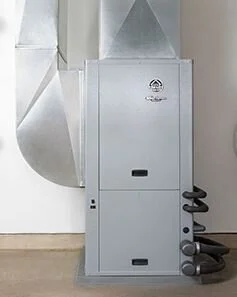If you are interested in the newest technology to update your old HVAC system, One of the most energy-efficient systems at the moment is a geothermal cooling and heating system.
HVAC Preventative Maintenance Tips For the Fall and Winter
Signs It’s Time To Replace Or Upgrade Your HVAC System
END-OF-SUMMER A/C MAINTENANCE TIPS
7 Signs Your HVAC System Is Wasting Energy—And What to Do About It
5 Reasons to Get an HVAC Maintenance Plan
Do I Need a Separate Dehumidifier if I Have an Air Conditioner?
High humidity is an everyday thing here in the south. The phrase “dry heat” is about as foreign a concept as snow in winter. However, most people still don’t take steps to address the high humidity problems in their own homes. One of the most damaging myths regarding humidity is that if you have an air conditioner, you don’t need to use a dedicated dehumidifier. Let’s take a look at why that isn’t true.
High Humidity
First, why do you need to worry about high humidity in the first place? There are two primary reasons. The higher the humidity levels in the air are, the higher the evaporation point for most liquids. That includes sweat. So, the higher the humidity levels are, the longer it will take your body to cool itself. Comfort isn’t the only concern, however.
High humidity also promotes mold growth in the darker areas of your home, like inside the walls and under the sink. Mold spores can cause a wide range of nasty health problems, some of which can even be life-threatening in certain circumstances. This is one of the biggest reasons why you need to control your indoor humidity.
Why Air Conditioners Aren’t Good Enough
Air conditioners do have some dehumidifying function, though it’s entirely accidental. The system cools the air past the dew point, which causes it to shed some of its extra humidity. However, because the air conditioner is not designed to do that, it will never be as effective as a dedicated dehumidifier. If you want to avoid the issues associated with high humidity, you should absolutely install a dedicated dehumidifier in your home.
At Harbin Air our professionals can help you with the humidity in your home. We carry the
TrueDRY™ DR65 Dehumidification System
Remove 65 pints of moisture per day with this whole-house dehumidifier
Moisture leads to humidity, which leads to being uncomfortable in your own home. Our TrueDRY™ DR65 Dehumidification System can help. It’s a whole-house dehumidifier that can remove up to 65 pints of moisture per day from the air and replaces it with fresh, filtered air. You can dehumidify the whole house or a certain area. Everything about the dehumidifier makes it homeowner-friendly. Unlike portable units, it’s not out in the open. It’s also super quiet and efficient. Maintenance? Minimal. The dehumidifier drains automatically.
Removes up to 65 pints of moisture per day
Minimal maintenance
Increased comfort and energy savings
Remove excess moisture from the air, delivering fresh, filtered air in the home
Less moisture in the home reduces the strain on your air conditioner and also allows you to set your thermostat higher to run your air conditioner less
Can remove moisture evenly throughout the entire home or focus specifically on problem areas that can lead to costly renovations
Unlike portable units, Honeywell whole-house dehumidifiers provide unobtrusive, quiet and efficient operation
Professional installation
source credit: https://bit.ly/30bbTKm
Tips on How to Protect Your HVAC System from Summer Storms
source credit: Deposit Photos
Thunderstorms become more frequent during the summer season. In addition to exterior components such as the roof and windows, your HVAC system also needs to be ready in the event a storm hits your area. Here are some tips on how to properly prepare your HVAC system for summer storms.
Turn Off the Power to Your HVAC System at the Circuit Breaker
As soon as the weather shifts and you know for sure a storm is coming, turn off the power to your air conditioner or heat pump from the circuit breaker box. This may make your home slightly uncomfortable, but it’s necessary to save your HVAC unit from a power surge. It also reduces the risk of damage in case of a lightning strike. If you have a window-mounted air conditioner, unplug it from the wall.
Cover Your Outdoor Unit
The outdoor unit of your air conditioner or heat pump houses the compressor, which can be vulnerable to damage from wind, rainwater and debris, all of which can result in costly AC repairs. Clear the area around the outdoor unit and cover it with a tarp or similar durable cover. You can secure the tarp by tying it to something stable nearby. Do not use the HVAC unit while it’s still covered, as the heat won’t get vented properly and may cause damage.
Test Your Backup Generator
If you have a backup generator, test it according to manufacturer instructions using a small amount of fuel. Troubleshoot problems while the weather is clear so you can be sure to have a generator you can count on in case the power goes out. Never leave fuel in the tank when you’re not using it; keep it running until it consumes all the fuel. Consult its care and maintenance guide if you encounter any problems.
Call Your HVAC Technician If You Suspect Damage
If you think your air conditioner or heat pump has been damaged by the most recent storm, don’t attempt to conduct repairs. Instead, contact your HVAC technician and schedule a full inspection and possible repairs. If your system is covered by your insurance provider, make sure you and your HVAC technician document the full extent of the damages. This will be required by your insurance adjuster in filing your claim.









